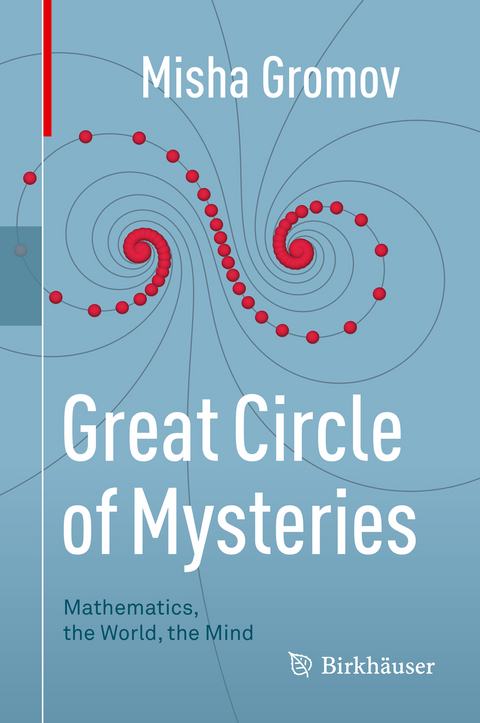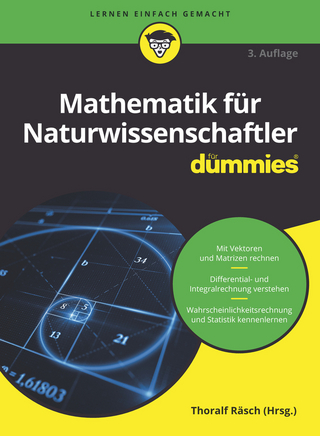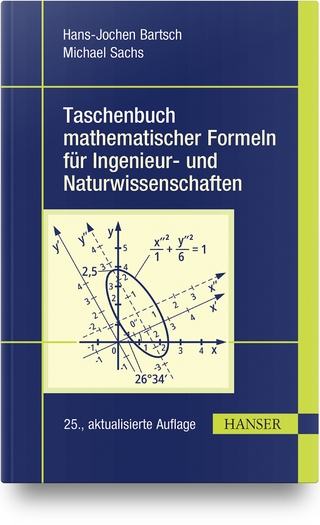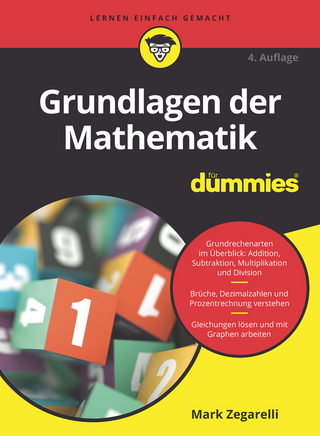
Great Circle of Mysteries
Springer International Publishing (Verlag)
978-3-319-53048-2 (ISBN)
This visionary and engaging book provides a mathematical perspective on the fundamental ideas of numbers, space, life, evolution, the brain and the mind. The author suggests how a development of mathematical concepts in the spirit of category theory may lead to unravelling the mystery of the human mind and the design of universal learning algorithms.
The book is divided into two parts, the first of which describes the ideas of great mathematicians and scientists, those who saw sparks of light in the dark sea of unknown. The second part, Memorandum Ergo, reflects on how mathematics can contribute to the understanding of the mystery of thought. It argues that the core of the human mind is a structurally elaborated object that needs a creation of a broad mathematical context for its understanding. Readers will discover the main properties of the expected mathematical objects within this context, called ERGO-SYSTEMS, and readers will see how these "systems" may serve as prototypesfor design of universal learning computer programs.
This is a work of great, poetical insight and is richly illustrated. It is a highly attractive read for all those who welcome a mathematical and scientific way of thinking about the world.
Mikhail Leonidovich Gromov is a French–Russian mathematician. He is a Professor at the Institut des Hautes Études Scientifiques and New York University. During his outstanding career he has received many honors and prizes; most recently he was awarded the Abel Prize "for his revolutionary contributions to geometry." He is a prolific author with more than 150 scientific publications including 8 books.
Beautiful Elsewhere.- Science.- Numbers.- Laws.- Truth.- Life.- Evolution.- Brain.- Mind.- Mysteries Remain.- Ergo Project. Universality, Simplicity and Ergo Brain.- Freedom, Curiosity, Interesting Signals and Goal Free Learning.- Information, Prediction and a Bug on the Leaf.- Stones and Goals.- Ego, Ergo, Emotions and Ergo-Moods.- Common Sense, Ergo Ideas and Ergo Logic.- Ergo in the Minds.- Language and Languages.- Meaning of Meaning.- Play, Humour and Art.- Ergo in Science.- Unreasonable Men and Alternative Histories.- Mathematics and is Limits.- Numbers, Symmetries and Categories.- Logic and Illusion of Rigor.- Infinte inside, Finite outside.- Small, Large, Inaccessible.- Probability: Particles, Symmetries, Languages.- Signal Flows from the World to the Brain.- Characteristic Features of Linguistic Signals.- UnderstandingStructures and the Structure of Understanding.- Sixteen Rules of Ergo-Learner.- Learning to Understand Languages: from Libraries to Dictionaries.- Libraries, Strings, Annotations and Colors.- Teaching and Grading.- Atoms of Structures: Units, Similarities, Co-functionalities, Reductions.- Fragmentation, Segmentation and Formation of Units.- Presyntactic Morphisms, Syntactic Categories and Branched Entropy.- Similarities and Classifcations, Trees and Coordinatizations.- Clustering, Biclustering and Coclustering.- Bibliography.
"The book presents a wealth of knowledge with many fascinating quotes and stories illustrated by beautiful pictures. It gives as such a lot of inspiration and explores the kind of mathematics needed to understand ergo brains. If you expect an entertaining and educating, but also technical book on modern science and mathematics, in particular in understanding the mind then this book fills the bill." (Manfred Kerber, zbMATH 1433.00004, 2020)
| Erscheinungsdatum | 23.08.2018 |
|---|---|
| Zusatzinfo | VI, 202 p. |
| Verlagsort | Cham |
| Sprache | englisch |
| Maße | 155 x 235 mm |
| Themenwelt | Mathematik / Informatik ► Mathematik ► Allgemeines / Lexika |
| Mathematik / Informatik ► Mathematik ► Logik / Mengenlehre | |
| Schlagworte | brain • ergo-systems • Languages • Learning Algorithms • Mathematical Foundations • Mathematical Logic • Mathematical Logic and Foundations • Mathematics • mathematics and statistics • Mind • Probability • Signals • Structures |
| ISBN-10 | 3-319-53048-8 / 3319530488 |
| ISBN-13 | 978-3-319-53048-2 / 9783319530482 |
| Zustand | Neuware |
| Haben Sie eine Frage zum Produkt? |
aus dem Bereich


